Jonathan Spangenberg, the President of the Central Council of Armenians in Germany, who is actively involved in initiatives aimed at raising Armenian issues on international platforms, in particular, the ethnic cleansing committed by Azerbaijan in Artsakh in 2023, the violated rights of Artsakh Armenians, the Armenian hostages held in Baku, and other crimes committed by Azerbaijan, was in Armenia recently.
During his visit, Jonathan Spangenberg also participated in the 4th annual conference organized by the California Center for Truth and Justice at the Matenadaran in Yerevan on June 4-6. This year, it was held under the title “Crime Against Peace: Addressing the Crime of Aggression in a Changing World.”
In an interview with Mediamax, Jonathan Spangenberg spoke about his deep connection to Armenia, his long-standing advocacy for Armenian causes, and the importance of persistent, collective effort in the pursuit of justice.
Armenian by choice
I was born in Germany. When I was one year old, my parents and I moved to Lebanon, to Ainjar (Anjar), founded by Armenians from Musa Dagh. I spent the first 20 years of my life there. I attended Armenian school. Although I spoke German with my parents at home, I used Armenian – and occasionally Arabic – when communicating with people.
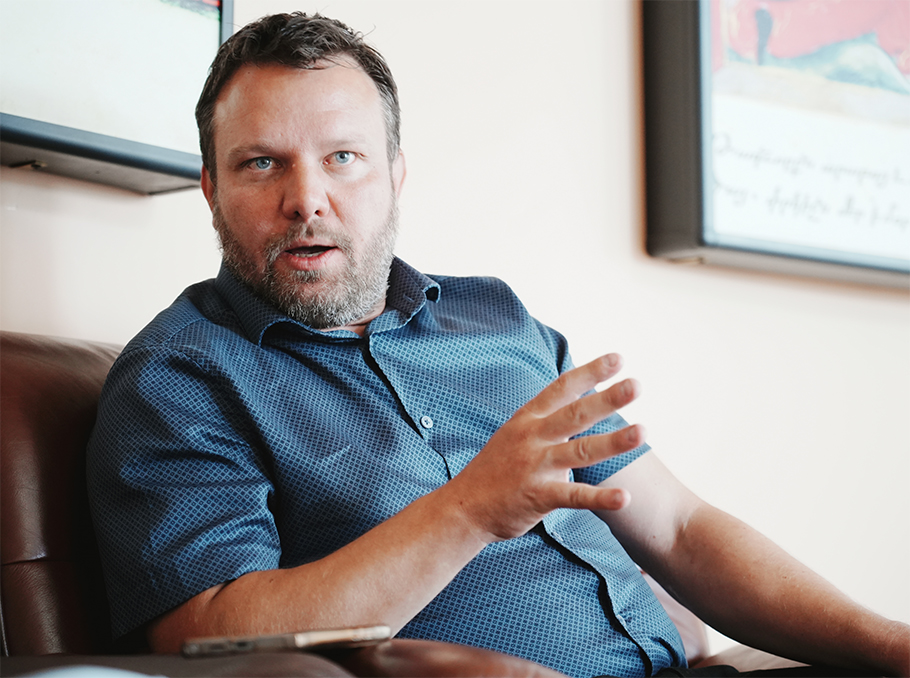 Jonathan Spangenberg
Jonathan Spangenberg Photo: Mediamax
My parents worked for the Swiss-German Christian humanitarian organization Hilfsbund, founded in 1896 to aid Armenian orphans who had survived the Hamidian massacres of 1894–1896. Over the years, the organization expanded its mission, providing vital assistance to Armenian Genocide survivors and their children. In the 1940s, when the people of Musa Dagh settled in Anjar, Hilfsbund established the Armenian Evangelical Secondary School there. The latter also had a boarding school. Since 1984, my father assumed the responsibility for managing the boarding school.
After graduating, I continued my studies at Haigazian University in Beirut, where I explored Armenian and world history in depth. I later pursued further education in Germany, where I became a professional translator. While translation is my profession, I am a painter and an artist.
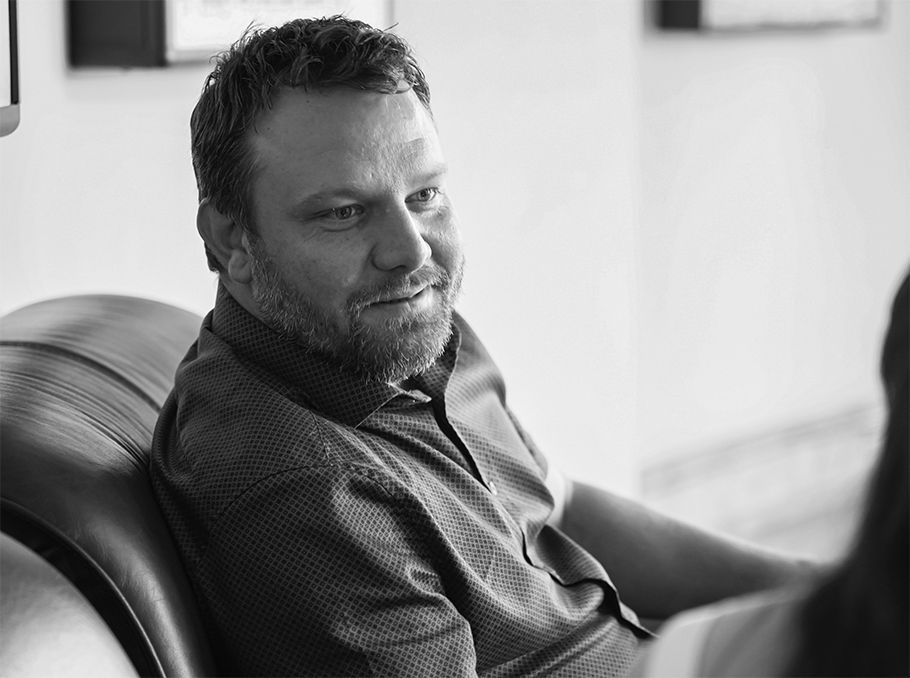 Jonathan Spangenberg
Jonathan Spangenberg Photo: Mediamax
Upon returning to Germany, I became involved with the local Armenian community and took part in initiatives advocating for the recognition of the Armenian Genocide. It was during this time that my connection to Armenia deepened. I began to ask myself: Who am I - German, Lebanese, Armenian? It was through that search that my Armenian essence became more conscious. I consider myself Armenian by choice.
My wife is a Lebanese-Armenian. We have two children, Hayk and Frederick. Now we are an Armenian family in the classical Diaspora.
Years ago, due to my work in advancing Armenian issues, I was elected President of the Central Council of Armenians in Germany. This was a serious decision for me, especially considering the challenges Armenia is facing in recent years: the 2020 war, the forced displacement of Armenians from Artsakh, the issue of prisoners and hostages, and, of course, the looming threat of an Azerbaijani attack on the Republic of Armenia.
The Armenian cause at international conferences
I came to Armenia to take part in several initiatives aimed at responding to the pressing challenges the country is facing today. I was especially pleased to participate in the annual conference organized by the Center for Truth and Justice. This is a very important conference, bringing together highly qualified experts from various countries. The conference presented quite a rich material, which should have been of great interest to the Armenian public and the political field. Unfortunately, the level of engagement from the political sector was relatively low.
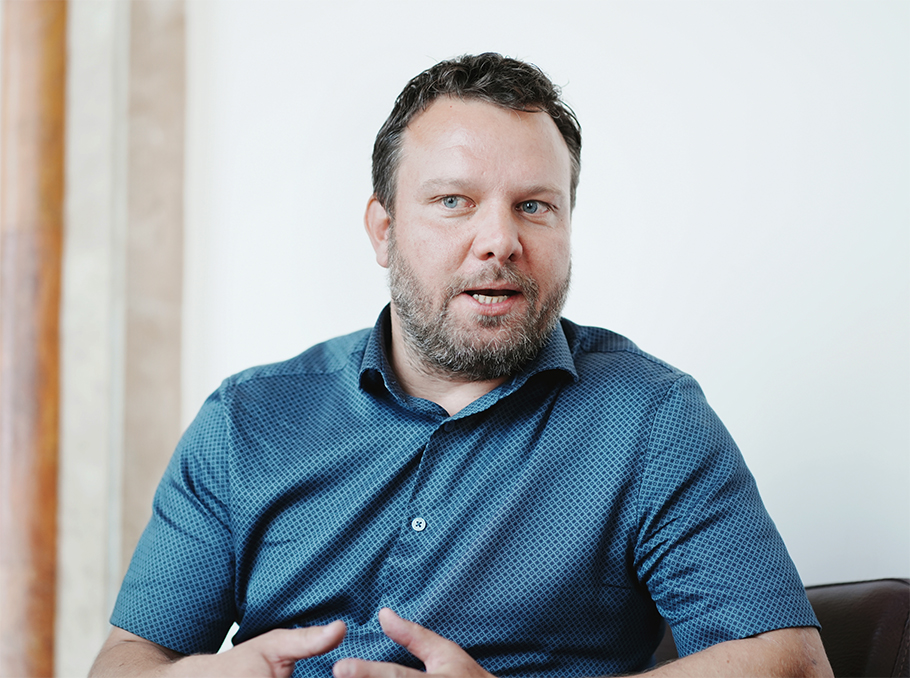 Jonathan Spangenberg
Jonathan Spangenberg Photo: Mediamax
Two weeks ago, I also participated in the Freedom Forum in Oslo, where I once again raised the issue of Armenian prisoners and hostages. As much as my abilities and time allow, I participate in international conferences on human rights, trying to always keep Armenian issues on the agenda.
Keep speaking out without getting disappointed
The process of holding perpetrators accountable takes time. Legal proceedings require thorough preparation, and during this time it is it is important not to get disappointed and keep speaking out.
Armenian captives, hostages and political prisoners are still being held in Baku prisons; the strategy of authoritarian countries rely on silence and forgetfulness – that is how they win. That is why we must continue to make efforts to keep this issue on the agenda. Society has a key role to play here – both in the Diaspora and in Armenia. This is a long-term struggle that needs everyone’s participation, even in the smallest of ways.
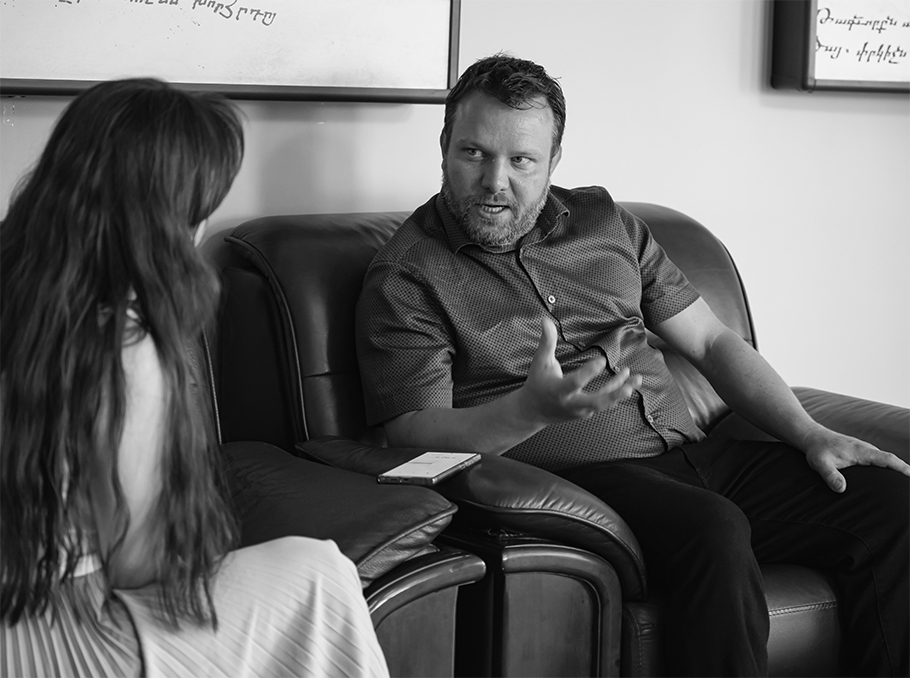 Jonathan Spangenberg
Jonathan Spangenberg Photo: Mediamax
In this context, raising the issue of the return of the Armenians of Artsakh at the conference titled “Religious Freedom: Preservation of the Armenian Spiritual, Cultural and Historical Heritage in Artsakh” in Switzerland a few weeks ago was an important step. Similar initiatives should take place in different countries of the world, consistently reaffirming that what happened in Artsakh in 2023 was genocide, and that the countries that signed the “Convention on the Prevention and Punishment of the Crime of Genocide” have obligations in this regard.
Action in three main directions
There are three key directions in which we must continuously work.
The first is political engagement, which should be carried out by Armenian communities across the world, raising the issues of Armenian prisoners of war and the rights of Artsakh Armenians with the the executive bodies of the given state.
The second direction is about preventing these issues from being forgotten. We need to keep these topics on the agenda both in media and on social media. During COP29, we saw that the widespread use of the hashtag #FreeArmenianHostages helped draw international attention and prompted coverage by international media outlets.
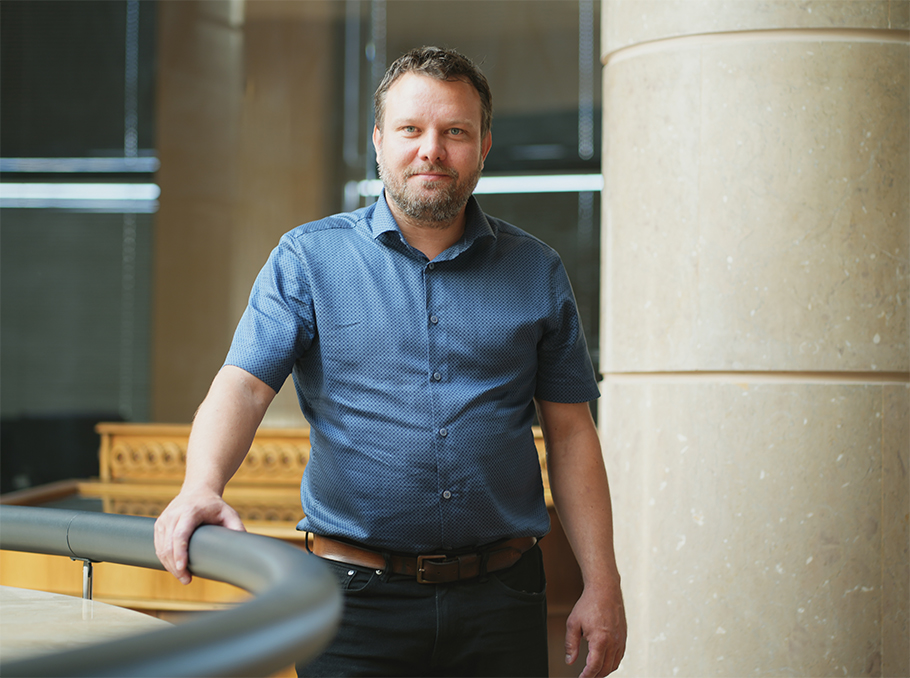 Jonathan Spangenberg
Jonathan Spangenberg Photo: Mediamax
To keep Armenian issues on the agenda, each person should think how to contribute. Young people, in particular, can play an important role by posting various materials online, organizing small awareness actions, and taking other creative initiatives.
The third direction is to establish contact with international NGOs. We must inform global human rights organizations about these issues and involve them in the process as well.
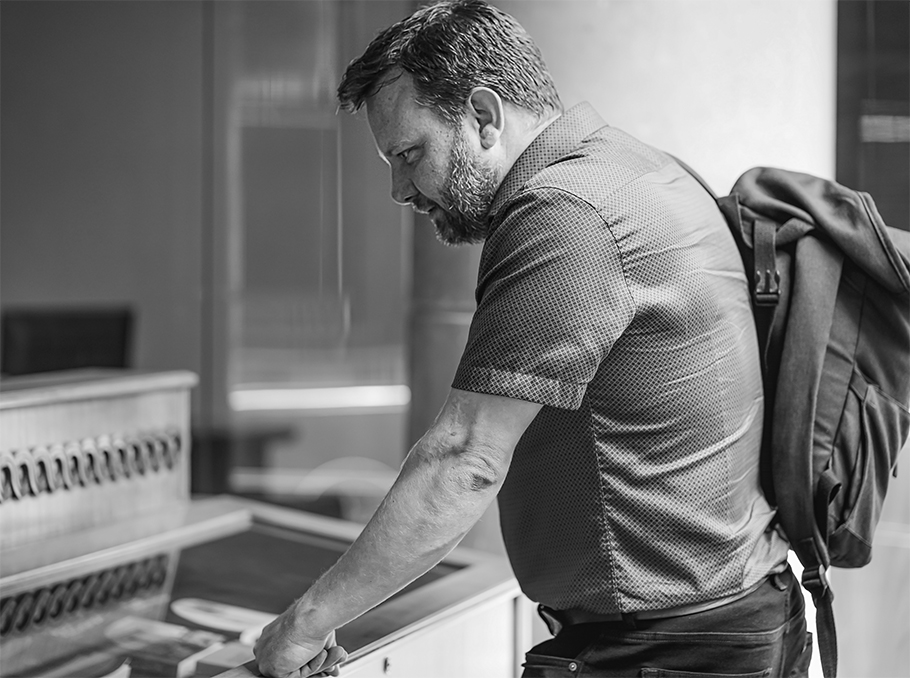 Jonathan Spangenberg
Jonathan Spangenberg Photo: Mediamax
These three areas of action are essential for raising awareness, however, real results will come only when governments apply direct pressure on Azerbaijan – demanding the immediate release of Armenian hostages and making it clear that non-compliance will have tangible consequences. This is a long and difficult process. But we must not lose hope, continuously remind Aliyev that his day will come, and we must work in that direction.
There is no peace in Azerbaijan’s continuous demands
Unfortunately, some circles – even within Armenia – are avoiding open discussion of these issues, claiming such discourse could undermine the peace process. If Azerbaijan really wanted peace, it would first release the Armenian hostages. We are now facing an even more serious threat - the threat of an Azerbaijani attack on Syunik.
As a private individual and a citizen of Germany, I am able to speak on these issues on international platforms, while the citizens of Armenia should discuss these issues with their government. I believe that the Armenian society should be more demanding, for the benefit of the country.
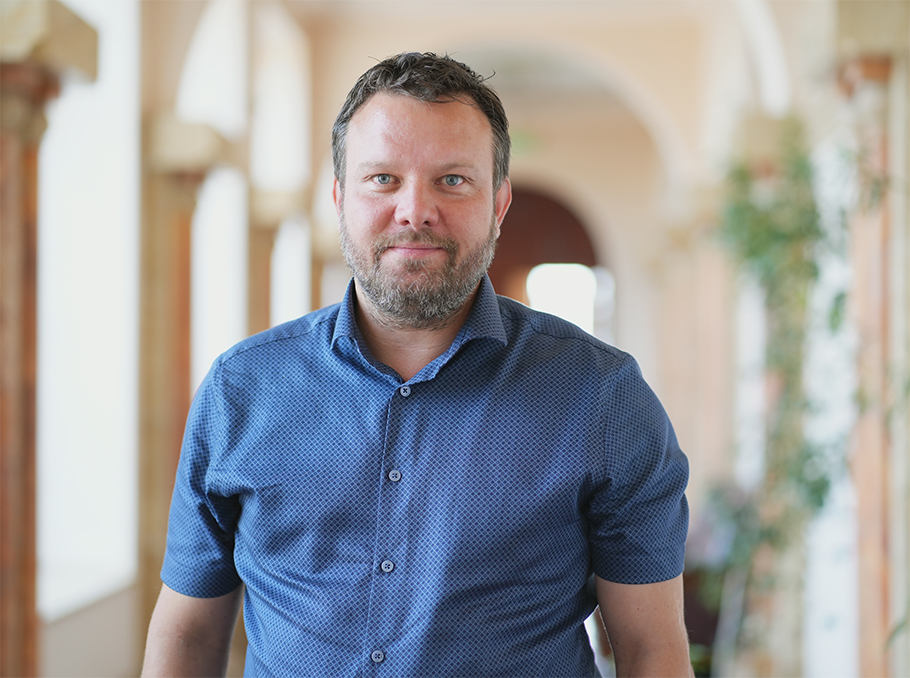 Jonathan Spangenberg
Jonathan Spangenberg Photo: Mediamax
Of course, when we raise these issues in our contacts with political actors in Germany, the first question that arises is: What is the official position of the Republic of Armenia? I personally welcome the peace process, but if it requires continuous concessions and Azerbaijan constantly puts forward new demands, I do not see peace there.
Changes in the world can happen rapidly, opening an opportunity for the restoration of Armenians’ rights. History shows that every dictatorial regime collapses one day. That day will also come for Azerbaijan, and we must be ready for that day. All the facts must be gathered, the right atmosphere must be formed, otherwise we will lose the moment.
Gayane Yenokian spoke with Jonathan Spangenberg
Photos by Agape Grigoryan







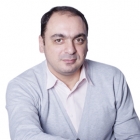
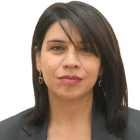
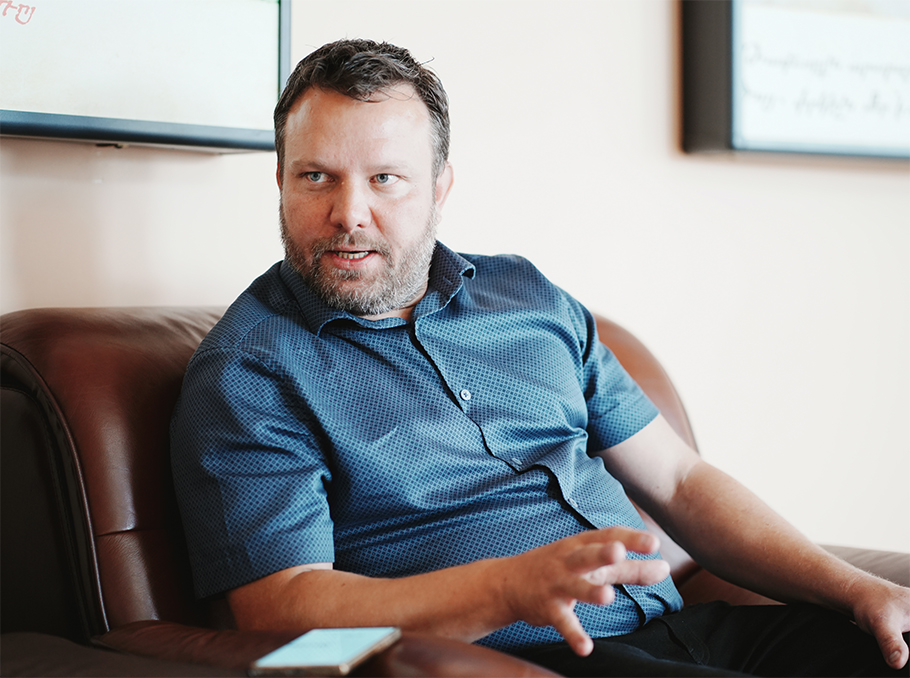


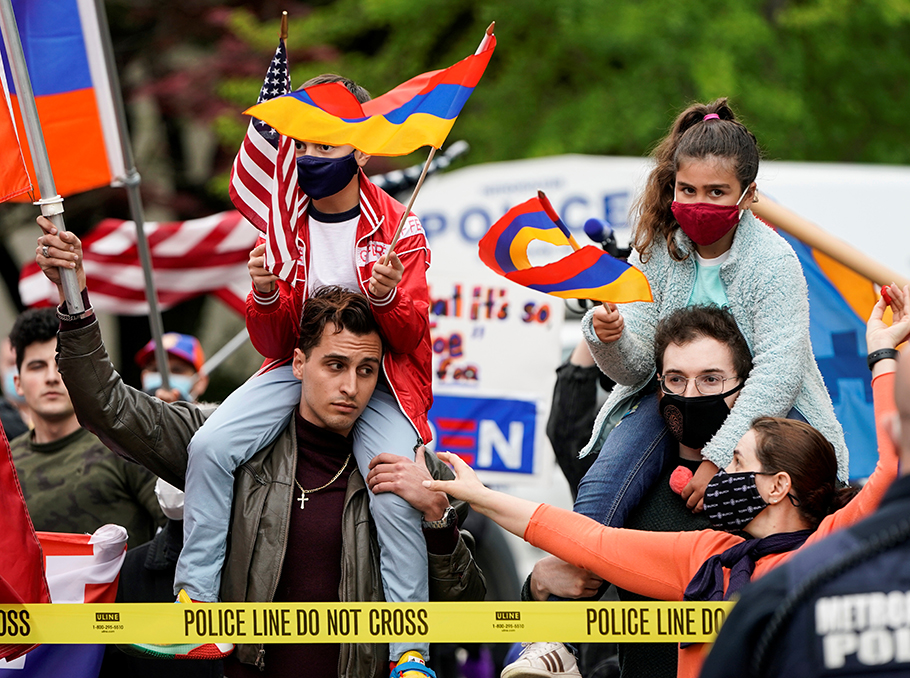
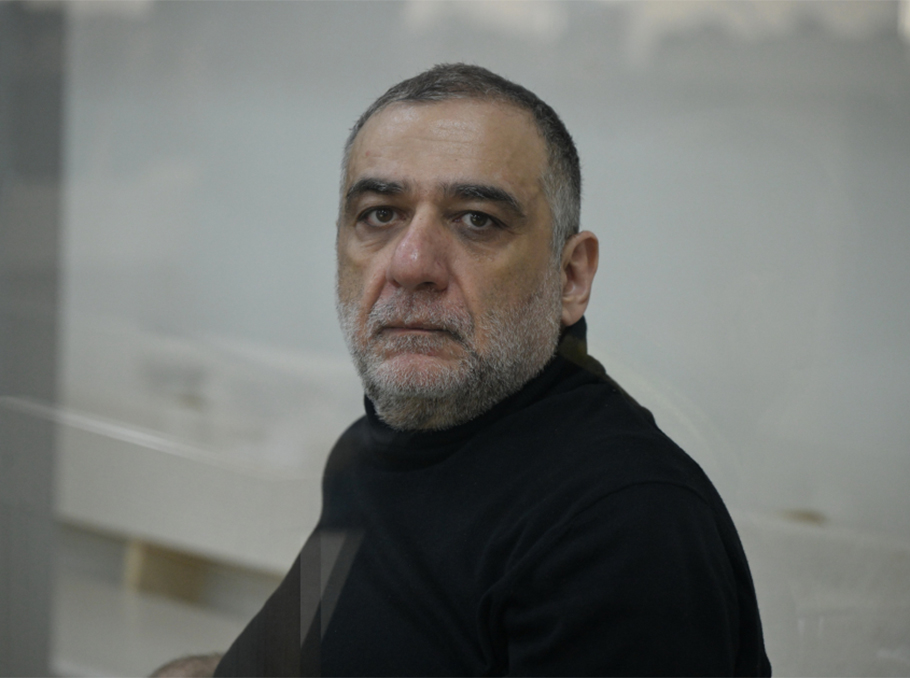







Comments
Dear visitors, You can place your opinion on the material using your Facebook account. Please, be polite and follow our simple rules: you are not allowed to make off - topic comments, place advertisements, use abusive and filthy language. The editorial staff reserves the right to moderate and delete comments in case of breach of the rules.